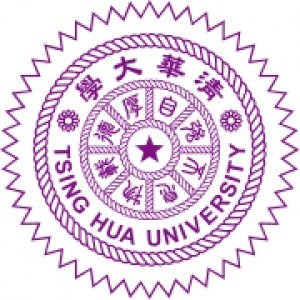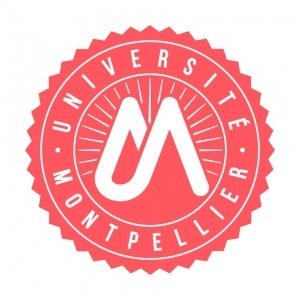Photos of university
Chemical Engineering (Sandwich) at Queen's University Belfast is a comprehensive undergraduate degree programme designed to prepare students for a dynamic career in the chemical engineering industry. This programme combines rigorous academic coursework with practical work experience, offering a well-rounded education that balances theory and application. Over the course of four years, students will develop a deep understanding of chemical processes, materials science, thermodynamics, process design, and safety protocols, equipping them with the skills needed to innovate and excel in sectors such as energy, pharmaceuticals, environmental technology, and manufacturing.
The programme features a distinctive 'sandwich' structure, where students undertake a paid work placement typically after their second year, integrating industry experience into their academic journey. This placement allows students to apply their knowledge in real-world settings, develop essential professional skills, and build industry connections that can prove valuable upon graduation. Throughout the course, students will engage with state-of-the-art laboratories, design projects, and collaborative teamwork, fostering problem-solving abilities and technical proficiency.
Queen's University Belfast's Chemical Engineering (Sandwich) programme is delivered by expert academics and industry professionals who are committed to providing high-quality education and research-led teaching. The curriculum is regularly updated to reflect the latest technological advancements and industry standards, ensuring graduates are industry-ready and adaptable to rapid technological change. The programme also emphasizes sustainability and responsible engineering practices, encouraging students to consider environmental impacts and develop innovative solutions for global challenges.
Graduates of this programme will be well-prepared for careers in chemical, process, and biochemical engineering, or for advanced postgraduate study and research. The programme is accredited by professional bodies, ensuring that students receive a qualification recognized internationally. With excellent career prospects, a strong network of industry partners, and access to cutting-edge facilities, Queen's University's Chemical Engineering (Sandwich) programme offers an outstanding pathway to a successful engineering career.
Detailed Course Facts
Application deadline January 15 Tuition fee- EUR 4160 Year (EEA)
- EUR 13380 Year (Non-EEA)
England, Scotland and Wales £9,000; EU £3,575; International: £11,500
Start date September 2015 Duration full-time 36 months Languages Take an IELTS test- English
Course Content
All degrees are modular with six modules (or the equivalent in half-modules) each year. Students take a range of modules in engineering, chemistry and science. To obtain professional accreditation students must follow a defined pathway.
Stage 1
Students take several Chemical Engineering modules as well as modules in Chemistry, Mathematics and Electrical Engineering.
Stage 2
Students extend their knowledge of Chemical Engineering, and study associated subjects such as computer-aided design and applications, laboratory practice, and professional studies.
Stage 3
Comprises more advanced Chemical Engineering modules, various modules covering aspects of management and professional studies, an in-depth design project and an optional research project.
MEng
MEng students at the end of Stage 3 are eligible to apply for a year-long study programme in the USA through Study USA, formerly the Business Education Initiative. MEng students take a fourth year, when they study research-led modules in advanced Chemical Engineering as well as specialist topics such as analysis and computer simulation of advanced chemical processes, energy and quality management, and safety and environmental management. There are further professional studies modules involving an entrepreneurial project in this year, and students carry out a major industrial project. There are opportunities to study abroad under the Erasmus exchange programme. We have exchanges with Chalmers Technical University in Gothenburg, Sweden, and with Delft Technical University in Delft, The Netherlands.
English Language Requirements
IELTS band : 6
To study at this university, you have to speak English. We advice you to
take an IELTS test. More About IELTSRequirements
BEng
-
A-level BBB including Mathematics and either a Science subject or Double Award Applied Science.
Note: applicants not offering Chemistry or Physics at A-level should have a minimum of a grade C in GCSE Chemistry and Physics or Double Award Science. - BTEC National Diploma A relevant BTEC National Diploma with 10 Distinctions and 8 Merits. Distinctions will be required in stipulated relevant units.
- Higher National Diploma Those with good grades in a relevant Higher National Diploma will be considered on their individual merits for entry to Stage 2.
- Irish Leaving Certificate B2B2B2B2CC/B2B2B2B2B2 including Higher Level grade B2 in Mathematics and a Science subject.
Work Experience
No work experience is required.
Related Scholarships*
- Academic Excellence Scholarship
"The Academic Excellence Scholarship can provide up to a 50 % reduction in tuition per semester. These scholarships will be renewed if the student maintains superior academic performance during each semester of their 3-year Bachelor programme. The scholarship will be directly applied to the student’s tuition fees."
- Access Bursary
Bursary for UK students all subjects where the variable tuition fee rate is payable.
- Alumni Bursary
Alumni Bursary for UK Undergraduate students
* The scholarships shown on this page are suggestions first and foremost. They could be offered by other organisations than Queen's University Belfast.
Accreditation
The degrees are accredited by the Institution of Chemical Engineers.








